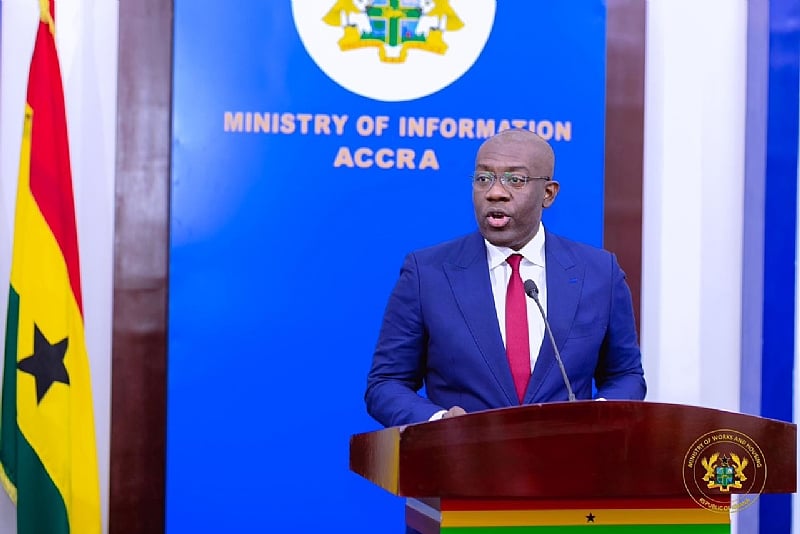The Government of Ghana is nearing the conclusion of negotiations to revitalize the largely inactive Saglemi Housing Units project. This effort aims to transfer the project to a private developer for redevelopment over the next two weeks. Minister for Works and Housing, Kojo Oppong Nkrumah, made this announcement during a press briefing on September 30, 2024, in Accra. The initiative follows President Akufo-Addo’s endorsement of a negotiation framework with the successful bidders, responding positively to a request made by Minister Nkrumah. The Saglemi Housing Project was originally intended to provide 5,000 affordable housing units, secured through an estimated government investment of $200 million. Unfortunately, by the time construction was suspended, only 1,506 units were partially completed, and these were subsequently deemed uninhabitable because they lacked fundamental infrastructure such as water, electricity, and sanitation.
A valuation by the Ghana Institute of Surveyors revealed that an additional investment of $100 million would be necessary to finalize construction on these units, a figure that the government has been unable to cover. In light of this, Cabinet has instructed the Ministry of Works and Housing to pursue the sale of the incomplete Saglemi project to a private sector entity, aiming for the completion and sale of the housing without additional government expenditure. Minister Nkrumah clarified that under the approved financial framework, the current value of work completed will be recognized as government equity in the project. Conversely, the costs needed to finish the construction will be viewed as equity held by the chosen private partner within a Special Purpose Vehicle (SPV) that will be established for this purpose. The revenue generated from the sale of the finished housing units will be divided between the government and its private partners in accordance with their respective shares in the SPV.
As part of the bidding process, five firms expressed interest in the project, with two contenders shortlisted for the final stages of negotiation: Quarm-LMI Consortium and Broll Ghana Ltd. This development is significant, especially considering Ghana’s current housing crisis, which is reported to be around 1.8 million units—a notable reduction from the 2.8 million deficit recorded in 2010. Minister Nkrumah underscored the crucial need for innovative solutions to facilitate access to affordable housing solutions for every citizen. He articulated that housing transcends mere necessity; it is a fundamental right. The minister emphasized that having a secure, decent, and affordable home is vital to personal well-being, as it encapsulates a sense of security and dignity while providing avenues for personal growth and advancement.
The discussions surrounding Saglemi are a part of broader initiatives aimed at resolving various stalled housing projects throughout Ghana. Notably, the Koforidua Affordable Housing Project is gearing up to resume construction after it was transferred to the State Housing Company Limited. Minister Nkrumah highlighted that this transition aims to expedite the construction process whilst ensuring strict adherence to quality and efficiency standards. He is optimistic that these renewed efforts to revive stopped housing initiatives will play an important role in alleviating the housing shortage in the country, which remains a top priority for the government.
The current government initiatives and negotiations reflect a growing awareness of the critical situation regarding housing in Ghana, where citizens continue to struggle for access to affordable living spaces. In a country where housing is considered a fundamental right, the approach to tackling the crisis is through collaboration with the private sector, capitalizing on their capabilities to complete stalled projects. As the government engages with private firms, the results will showcase how public-private partnerships can make significant strides towards addressing longstanding issues in housing, thereby fulfilling the country’s social responsibility to its citizens.
In conclusion, the revival of the Saglemi Housing Units project represents a pivotal moment in Ghana’s efforts to combat its housing deficit and improve living conditions for its citizens. With the government taking proactive steps to engage the private sector, the project could become a model for similar initiatives seeking to address housing shortages across the nation. This strategy not only aims to complete the housing units but also to enhance the overall quality of life for Ghanaian citizens. Through dedicated governance and effective partnerships, there is potential for substantial progress in the sector, reinforcing the belief that access to safe and affordable housing is an essential component of national development.














